The views expressed in our content reflect individual perspectives and do not represent the authoritative views of the Baha'i Faith.
The only reigning Baha’i monarch to live in modern times, the Samoan head of state called the Malietoa, led his nation from colonialism to freedom and independence.
Known as His Highness Malietoa Tanumafili II, and also called Susuga, he held the title of one of Samoa’s four paramount chiefs and the head of state, or O le Ao o le Malo (the first warrior). Often referred to as the King of Samoa, he always preferred the traditional tribal title of Malietoa.
Tanumafili II led his nation for one of the longest periods of any head of state in history. He officially inherited the royal title of Malietoa from his father in 1940, ruling until his death in 2007, an unprecedented total of 67 years of uninterrupted leadership. After assuming the duties of the Malietoa, he served as a special adviser to New Zealand’s political administration.
RELATED: The Baha’i Queen – Marie of Romania
He worked diligently, negotiating with New Zealand’s government for more than two decades to gain Samoa’s independence. That effort finally succeeded in 1962, when Tanumafili II became the co-head of state with Tupua Tamasese Mea’ole. The two men ruled Samoa jointly for a little more than a year, and when Tupua died in 1963 Tanumafili became the sole head of state, a role he was to fill for another 44 years.
RELATED: The Baha’i Queen – Marie of Romania
Scholars and historians universally credit Tanumafili II’s leadership for steadily and fairly guiding his island nation from colonialism through independence – and then into a peaceful, conciliatory post-independence period. Unusual for its stability after gaining its independence in 1962, Samoa prospered under Tanumafili II’s reign, becoming the most peaceable, turmoil-free nation among all of the Pacific Islands — while its neighbors Tonga, Fiji, Vanuatu, the Solomon Islands and Papua New Guinea all suffered from riots, coups and political instability.
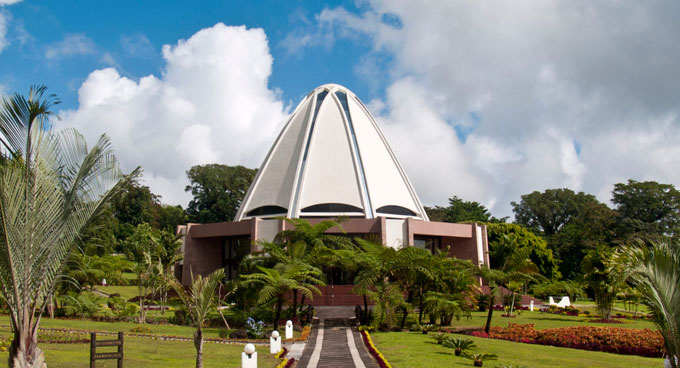
Samoa’s storied stability as a nation may have come, at least in part, from the Malietoa’s propensity for consultatively sharing power with others. He dramatically changed the old Samoan tradition of political dominance by one of the island’s four paramount chiefs – who had often competed with each other in the past, sometimes violently – by naming one of the chiefs as prime minister, another to the Council of Deputies and the third to share the Malietoa’s position.
Loved and venerated by the Samoan people, the Malietoa also inspired respect and honor from the leaders of other countries. Thabo Mbeki, the President of South Africa after Nelson Mandela, said the Malietoa was “a powerful and resonating voice for democracy and good governance as well as in articulating the development challenges unique to small developing island states.”
The last survivor of a generation of important Pacific leaders who guided their countries and peoples from colonialism to independence, Tanumafili II became a Baha’i in 1968, just five years into his reign. He often told the story of how he learned about the Baha’i Faith from his older brother:
My brother (High Chief Savea, a retired judge) knew so much about the Baha’i teachings. He was the first of us to study this new religion. During the early years of independence we witnessed many denominations being established, but the Baha’i Faith was so different, its teachings, its approach to people, its concern for the meek and lowly, its lack of interest in worldly things, its regenerating spirit. I was readily attracted.
His Highness Malietoa Tanumafili II participated in the 1984 dedication of the first Baha’i House of Worship in the Pacific Islands, one of only seven such Baha’i houses of worship in the world. When he died at the age of 95, the Baha’i international ruling body the Universal House of Justice said:
His service to the people of Samoa as Head of State was distinguished by the high principles, genuine compassion and personal humility that characterized the constancy of his concern for the welfare of all. As the first reigning sovereign to accept the Message of Baha’u’llah, he set a record that will forever illumine the annals of our Faith, one that future generations will increasingly extol.
His great interest for well-nigh four decades in the Faith’s progress was reflected in the enthusiastic affirmation of his belief whenever the opportunity presented itself and in the abiding joy with which he regarded the construction in 1984 of the Mother Temple of the Pacific Islands in Samoa….
You May Also Like
Comments



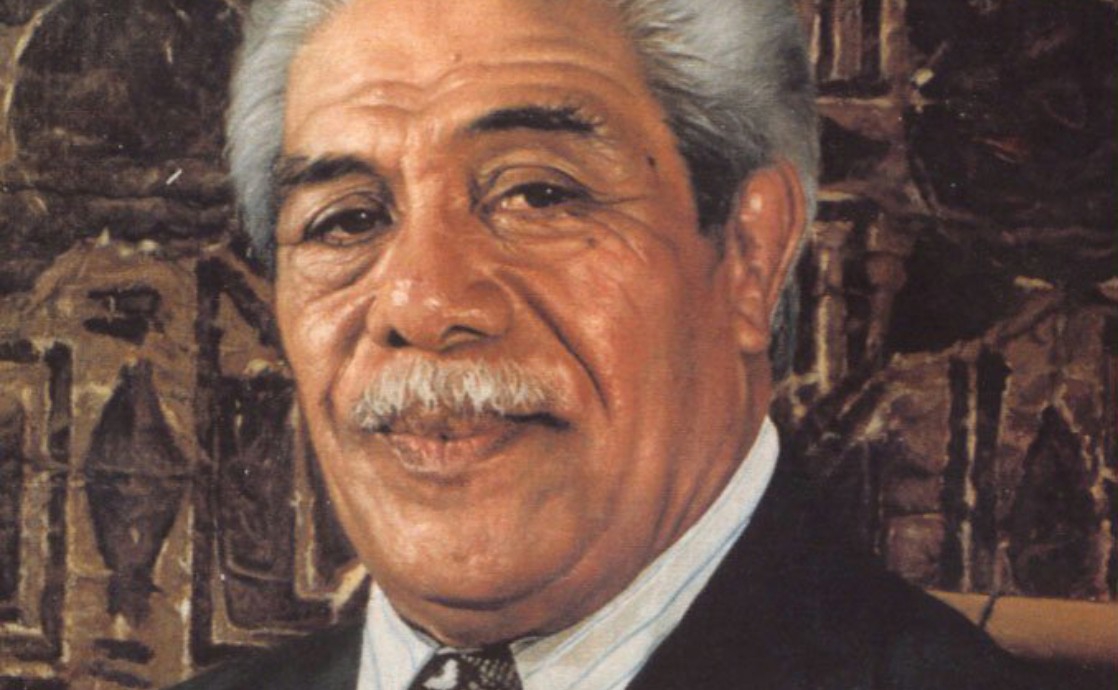
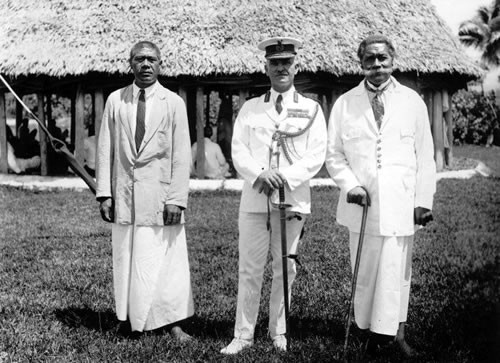

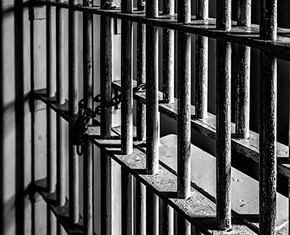

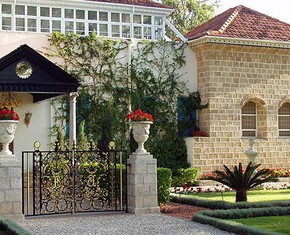









Here is a link to that event, dedication and the ceremony.